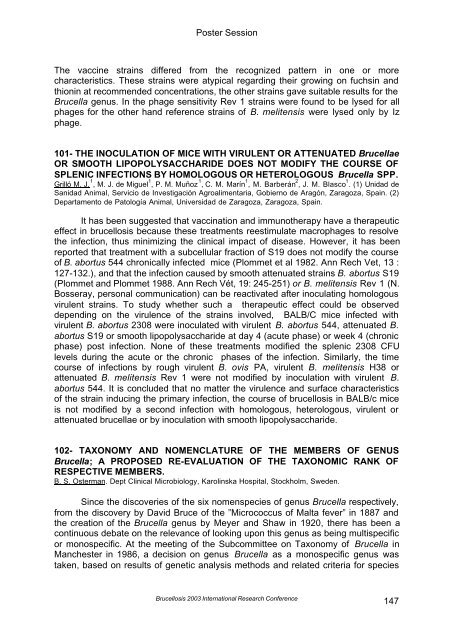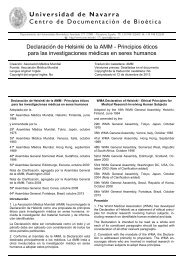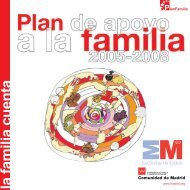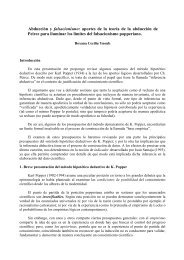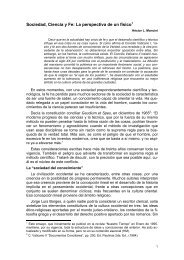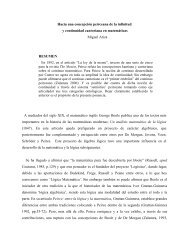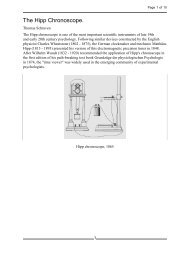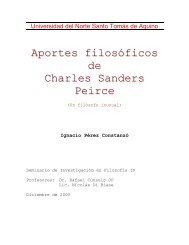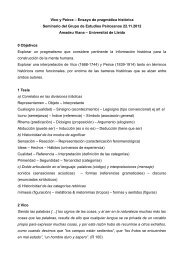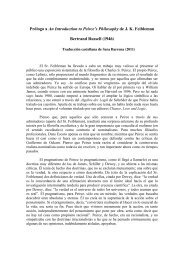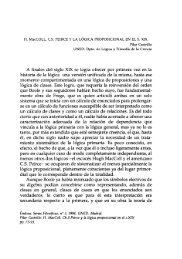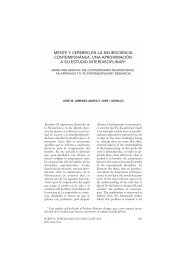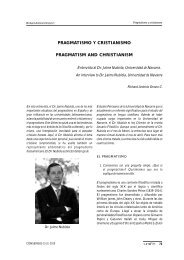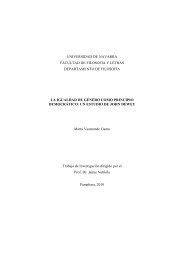Brucellosis 2003 proceedings - PHIDIAS
Brucellosis 2003 proceedings - PHIDIAS
Brucellosis 2003 proceedings - PHIDIAS
Create successful ePaper yourself
Turn your PDF publications into a flip-book with our unique Google optimized e-Paper software.
Poster Session<br />
The vaccine strains differed from the recognized pattern in one or more<br />
characteristics. These strains were atypical regarding their growing on fuchsin and<br />
thionin at recommended concentrations, the other strains gave suitable results for the<br />
Brucella genus. In the phage sensitivity Rev 1 strains were found to be lysed for all<br />
phages for the other hand reference strains of B. melitensis were lysed only by Iz<br />
phage.<br />
101- THE INOCULATION OF MICE WITH VIRULENT OR ATTENUATED Brucellae<br />
OR SMOOTH LIPOPOLYSACCHARIDE DOES NOT MODIFY THE COURSE OF<br />
SPLENIC INFECTIONS BY HOMOLOGOUS OR HETEROLOGOUS Brucella SPP.<br />
Grilló M. J. 1 , M. J. de Miguel 1 , P. M. Muñoz 1 , C. M. Marín 1 , M. Barberán 2 , J. M. Blasco 1 . (1) Unidad de<br />
Sanidad Animal, Servicio de Investigación Agroalimentaria, Gobierno de Aragón, Zaragoza, Spain. (2)<br />
Departamento de Patología Animal, Universidad de Zaragoza, Zaragoza, Spain.<br />
It has been suggested that vaccination and immunotherapy have a therapeutic<br />
effect in brucellosis because these treatments reestimulate macrophages to resolve<br />
the infection, thus minimizing the clinical impact of disease. However, it has been<br />
reported that treatment with a subcellular fraction of S19 does not modify the course<br />
of B. abortus 544 chronically infected mice (Plommet et al 1982. Ann Rech Vet, 13 :<br />
127-132.), and that the infection caused by smooth attenuated strains B. abortus S19<br />
(Plommet and Plommet 1988. Ann Rech Vét, 19: 245-251) or B. melitensis Rev 1 (N.<br />
Bosseray, personal communication) can be reactivated after inoculating homologous<br />
virulent strains. To study whether such a therapeutic effect could be observed<br />
depending on the virulence of the strains involved, BALB/C mice infected with<br />
virulent B. abortus 2308 were inoculated with virulent B. abortus 544, attenuated B.<br />
abortus S19 or smooth lipopolysaccharide at day 4 (acute phase) or week 4 (chronic<br />
phase) post infection. None of these treatments modified the splenic 2308 CFU<br />
levels during the acute or the chronic phases of the infection. Similarly, the time<br />
course of infections by rough virulent B. ovis PA, virulent B. melitensis H38 or<br />
attenuated B. melitensis Rev 1 were not modified by inoculation with virulent B.<br />
abortus 544. It is concluded that no matter the virulence and surface characteristics<br />
of the strain inducing the primary infection, the course of brucellosis in BALB/c mice<br />
is not modified by a second infection with homologous, heterologous, virulent or<br />
attenuated brucellae or by inoculation with smooth lipopolysaccharide.<br />
102- TAXONOMY AND NOMENCLATURE OF THE MEMBERS OF GENUS<br />
Brucella; A PROPOSED RE-EVALUATION OF THE TAXONOMIC RANK OF<br />
RESPECTIVE MEMBERS.<br />
B. S. Osterman. Dept Clinical Microbiology, Karolinska Hospital, Stockholm, Sweden.<br />
Since the discoveries of the six nomenspecies of genus Brucella respectively,<br />
from the discovery by David Bruce of the ”Micrococcus of Malta fever” in 1887 and<br />
the creation of the Brucella genus by Meyer and Shaw in 1920, there has been a<br />
continuous debate on the relevance of looking upon this genus as being multispecific<br />
or monospecific. At the meeting of the Subcommittee on Taxonomy of Brucella in<br />
Manchester in 1986, a decision on genus Brucella as a monospecific genus was<br />
taken, based on results of genetic analysis methods and related criteria for species<br />
<strong>Brucellosis</strong> <strong>2003</strong> International Research Conference<br />
147


